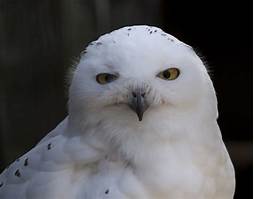Are Raccoons Dangerous as Pets?
Raccoons are often seen as cute and playful animals, but they can also be dangerous if they are kept as pets. While some people may find them to be entertaining companions, there are several reasons why raccoons should not be kept as pets.

Why Raccoons Are Not Good Pets
1. Wild Animals: Raccoons are wild animals, and they do not adapt well to living in captivity. They are not domesticated, and they can become aggressive if they feel threatened or stressed.
2. Health Risks: Raccoons can carry diseases that can be transmitted to humans, such as rabies, roundworm, and toxoplasmosis. These diseases can cause serious health problems, and in some cases, they can be fatal.
3. Destructive Behavior: Raccoons are naturally curious and playful, but their behavior can be destructive in a home environment. They may chew on furniture, knock over objects, and raid pantries and cupboards.
4. Legal Issues: In many areas, it is illegal to keep raccoons as pets. This is because they are considered to be a nuisance animal, and they can pose a danger to public health and safety.
Possible Dangers of Keeping Raccoons as Pets
1. Bites and Scratches: Raccoons have sharp teeth and claws, and they can inflict serious injuries if they feel threatened. Even a playful bite or scratch can become infected, leading to health complications.
2. Escapes: Raccoons are escape artists, and they can easily get out of cages or enclosures. This can pose a danger to the animal itself, as well as to people and property in the surrounding area.
3. Property Damage: Raccoons can cause extensive property damage by chewing on furniture, fixtures, and wiring. They may also raid gardens and yards, destroying plants and crops.
Alternatives to Keeping Raccoons as Pets
If you are interested in enjoying the company of raccoons, there are several alternatives to keeping them as pets.
1. Observe Raccoons in the Wild: You can observe raccoons in their natural habitat by visiting parks, forests, or other wildlife areas. This is a great way to learn about their behavior and habits without putting yourself or the animals at risk.
2. Volunteer at a Wildlife Rehabilitation Center: Wildlife rehabilitation centers care for sick, injured, or orphaned raccoons. Volunteering at a center is a great way to help these animals and learn more about them.
3. Support Raccoon Conservation: You can support raccoon conservation by donating to organizations that work to protect their habitat and reduce human-raccoon conflicts.
Conclusion
Raccoons are wild animals and not suitable for keeping as pets. They can pose a danger to people and property, and they can carry diseases that can be transmitted to humans. If you are interested in enjoying the company of raccoons, there are several alternatives to keeping them as pets, such as observing them in the wild, volunteering at a wildlife rehabilitation center, or supporting raccoon conservation efforts.
Declaration: All article resources on this website, unless otherwise specified or labeled, are collected from online resources. If the content on this website infringes on the legitimate rights and interests of the original author, you can contact this website to delete it.




